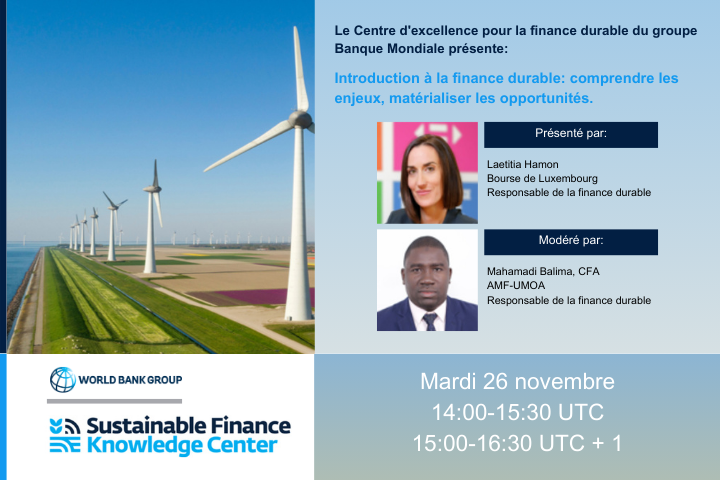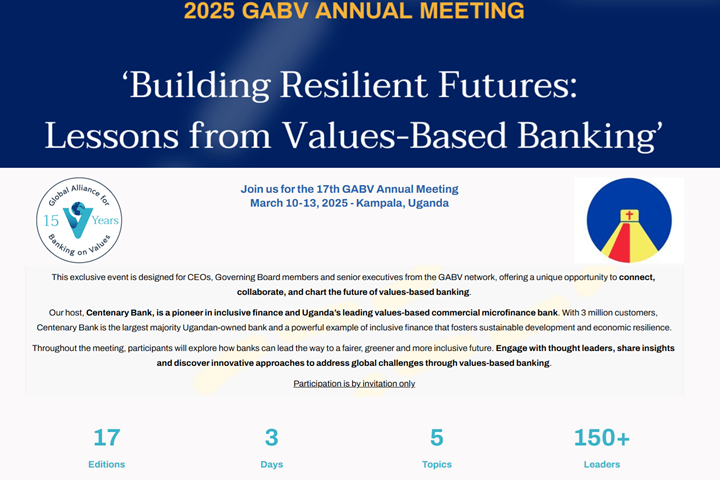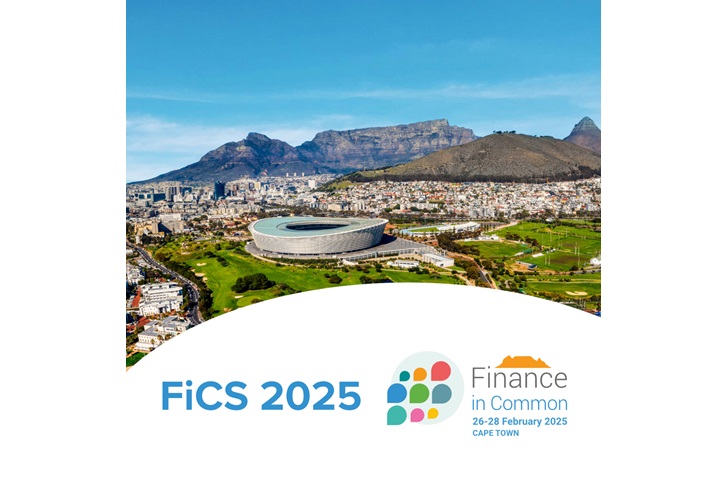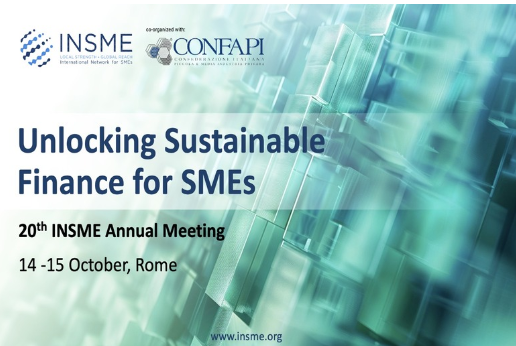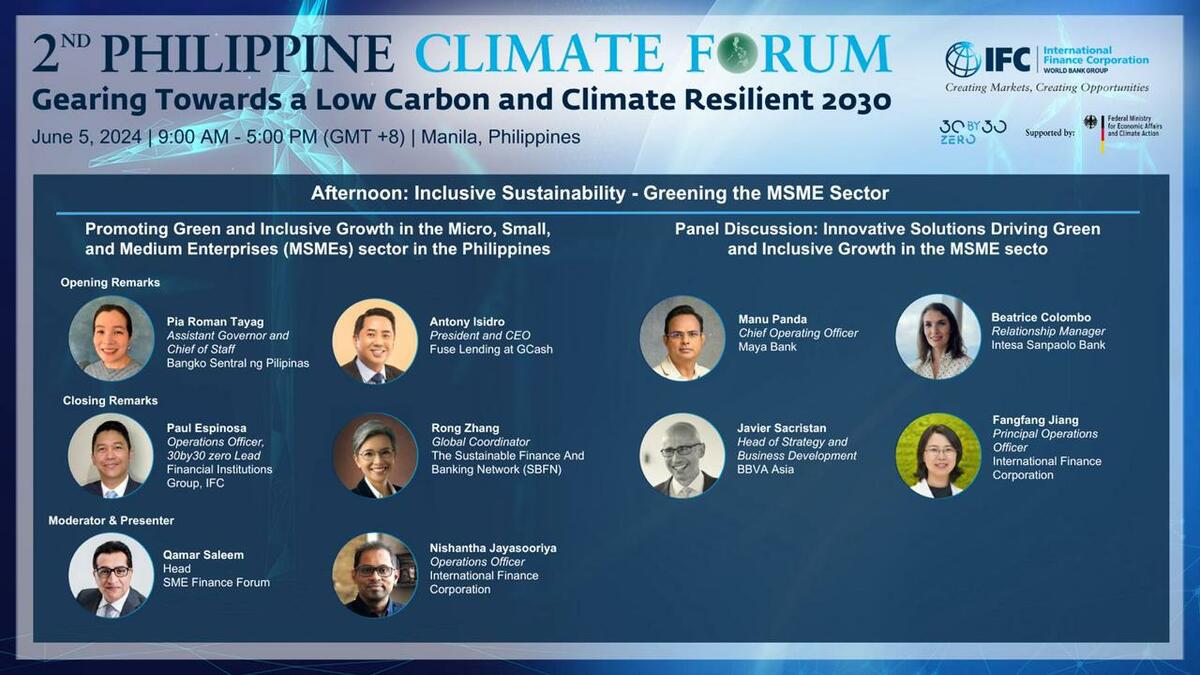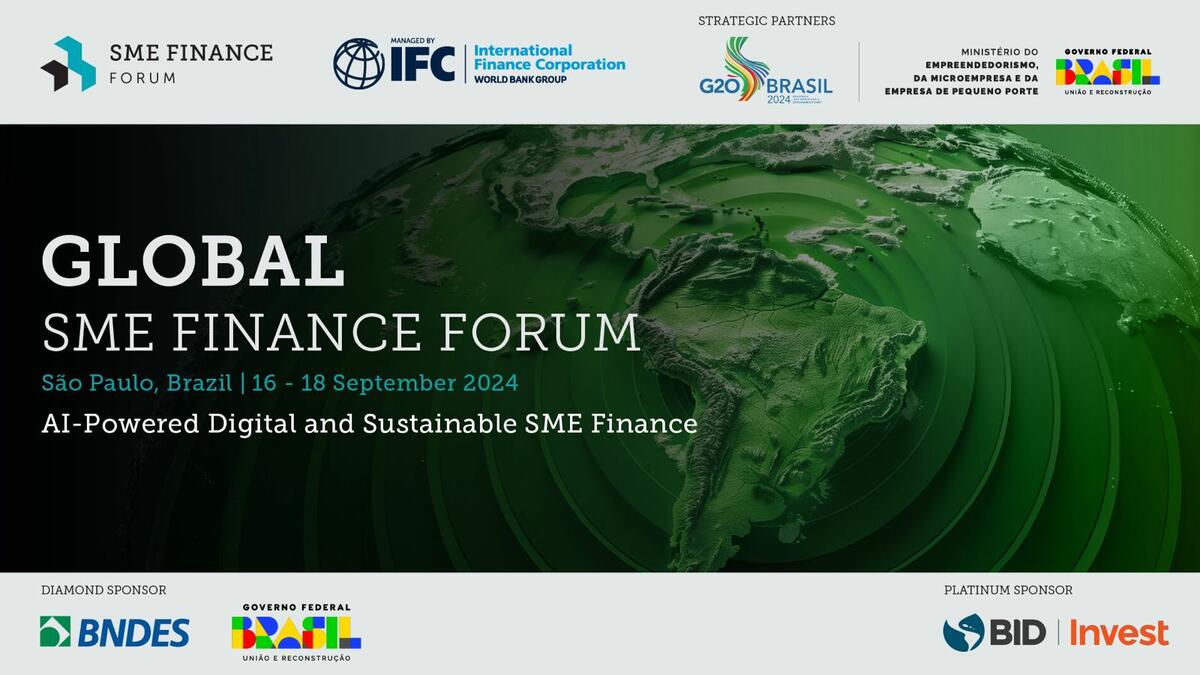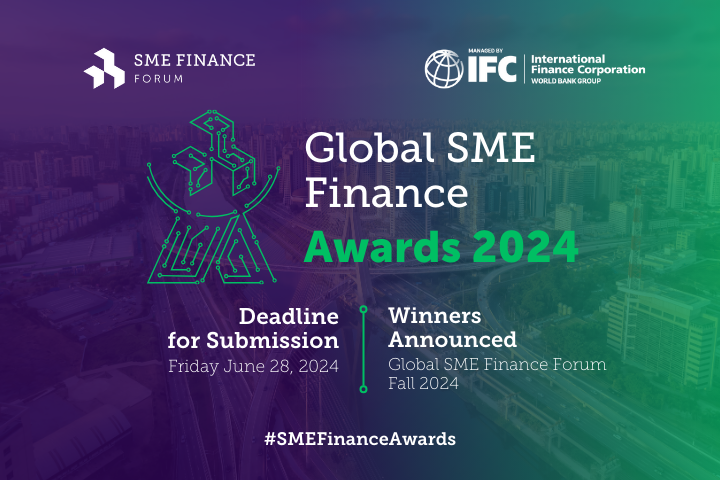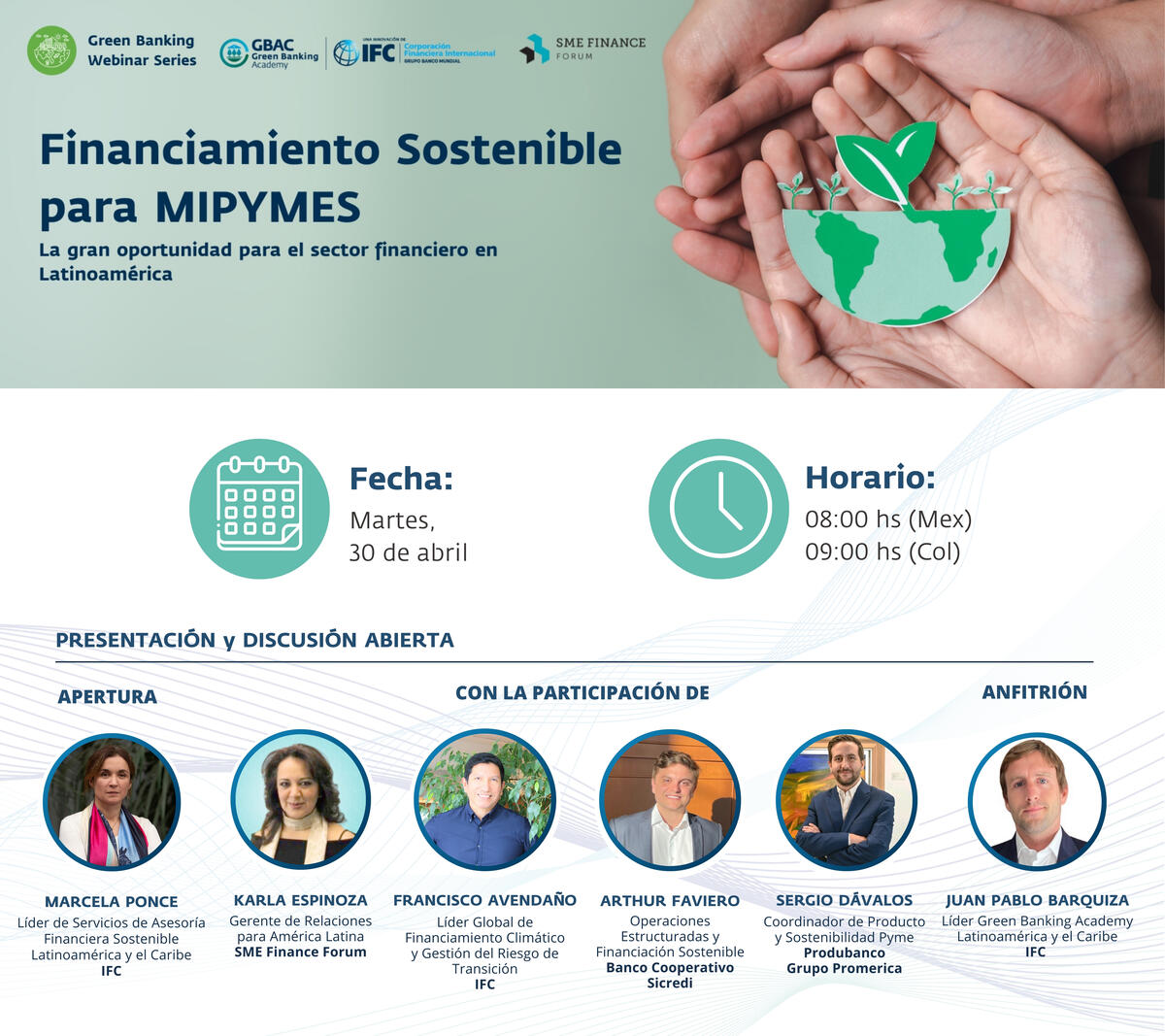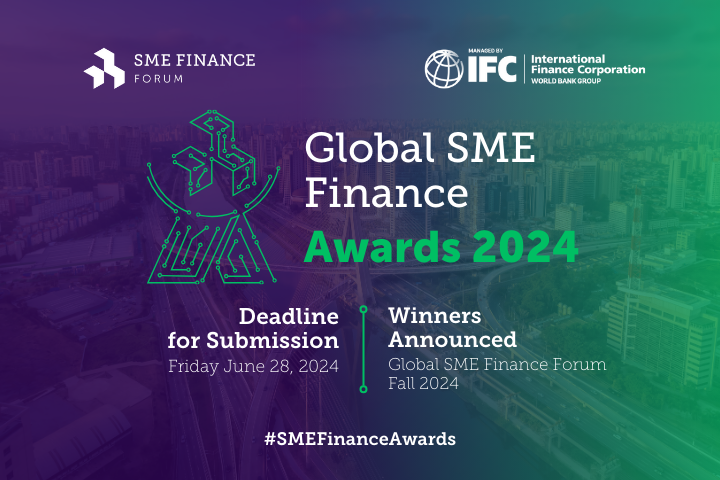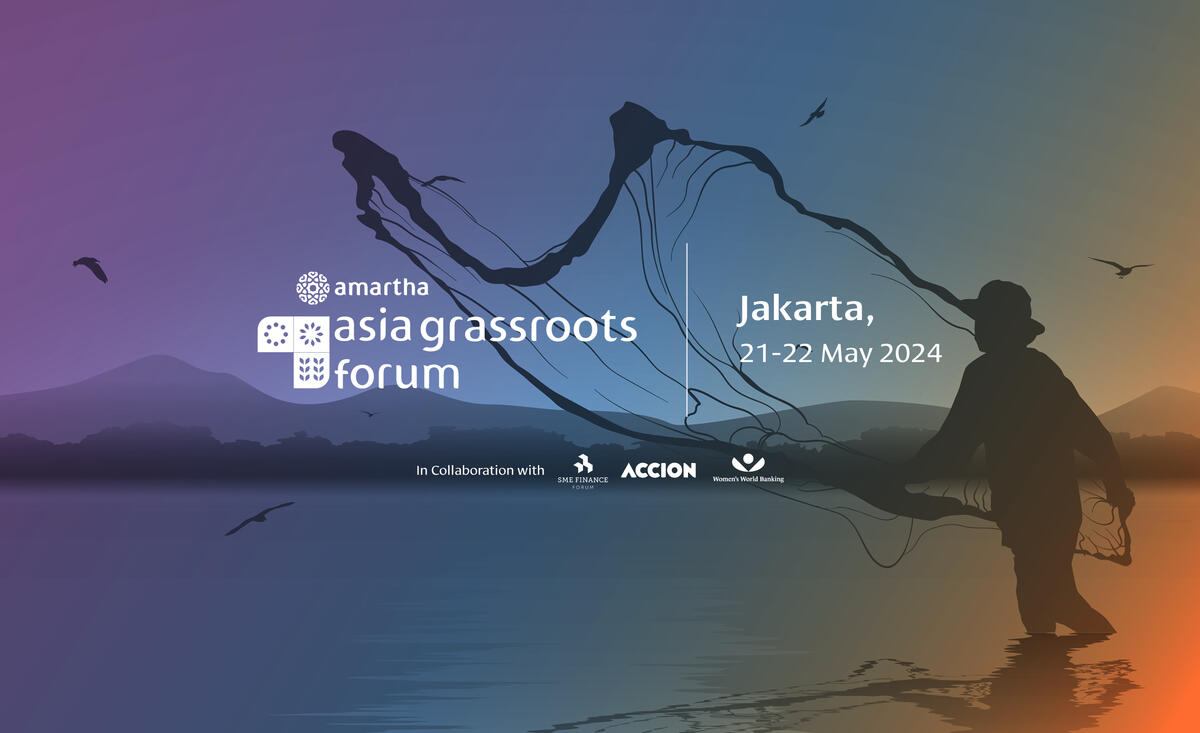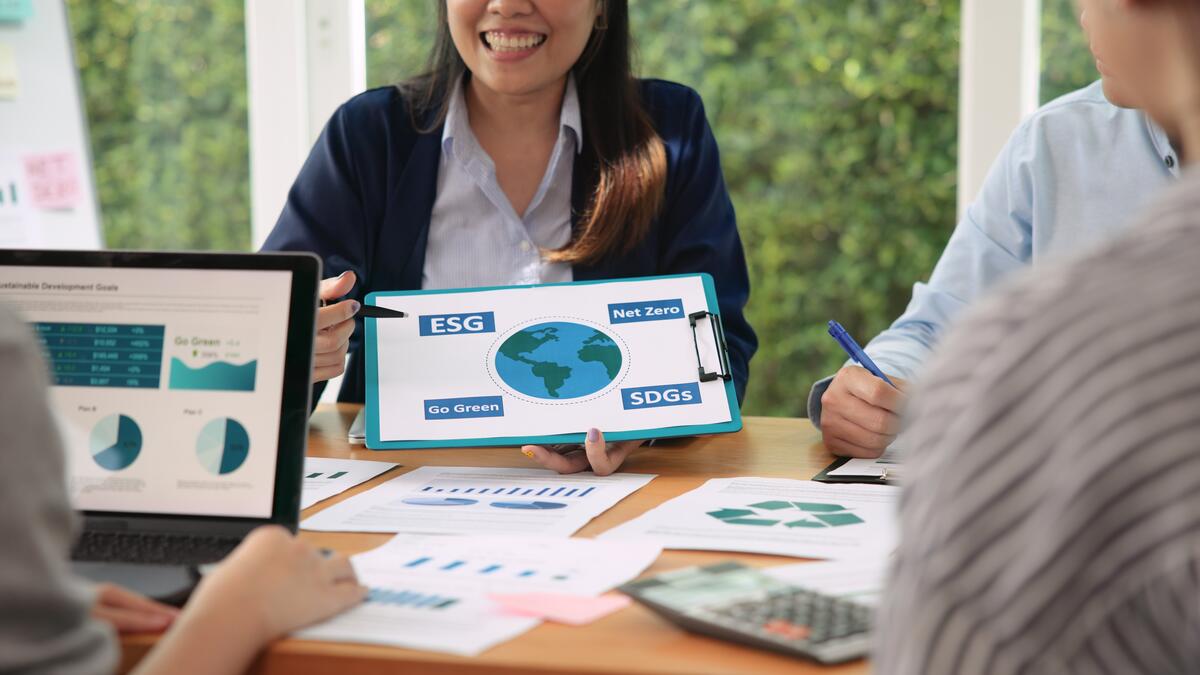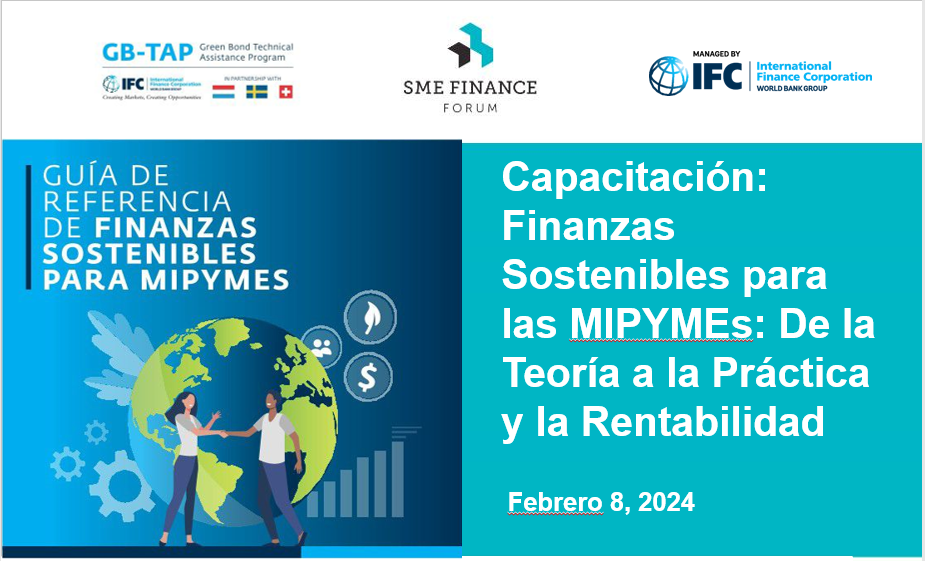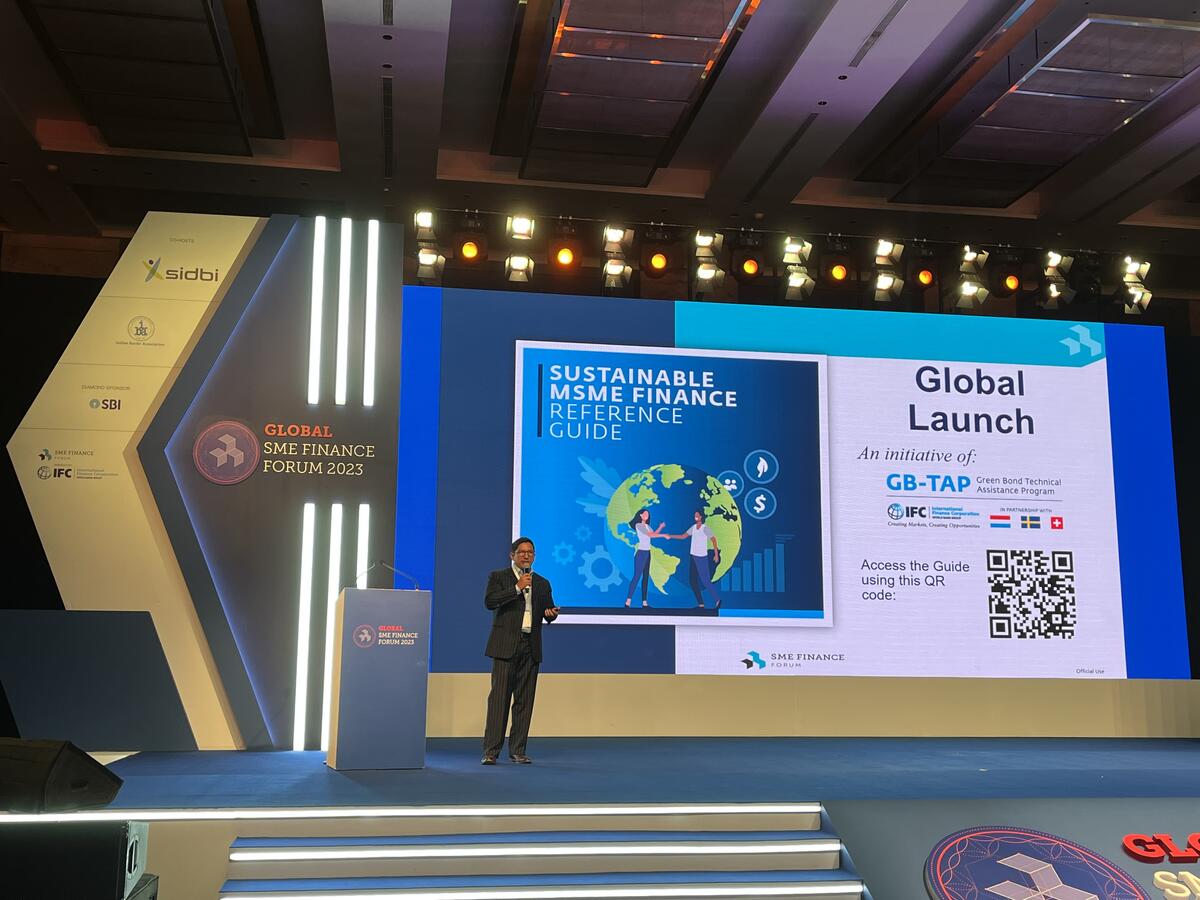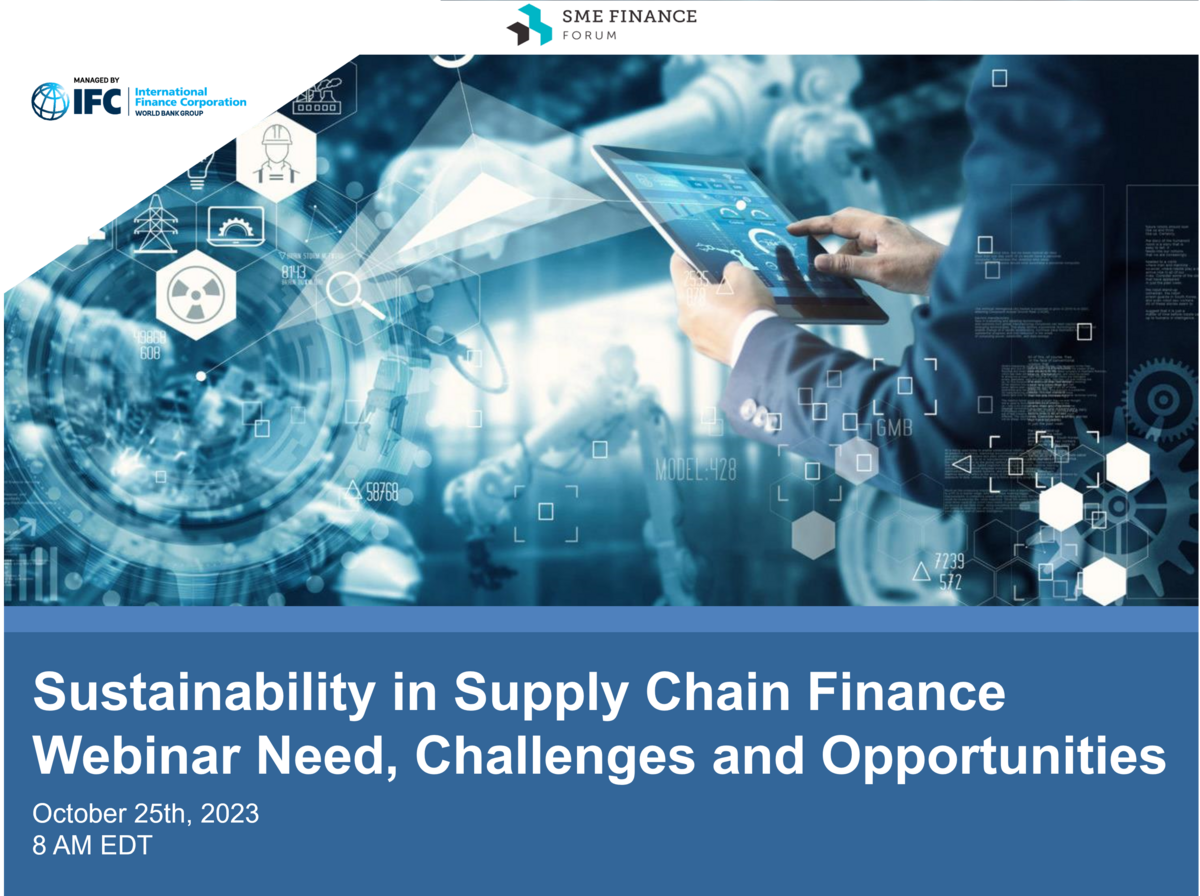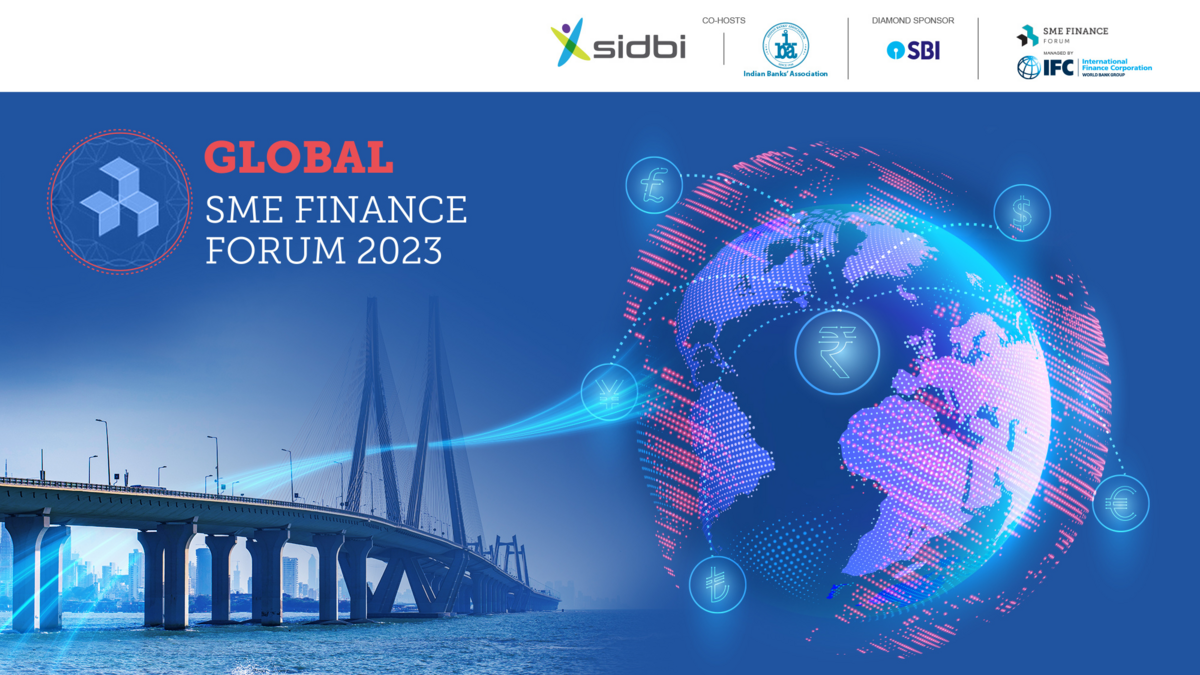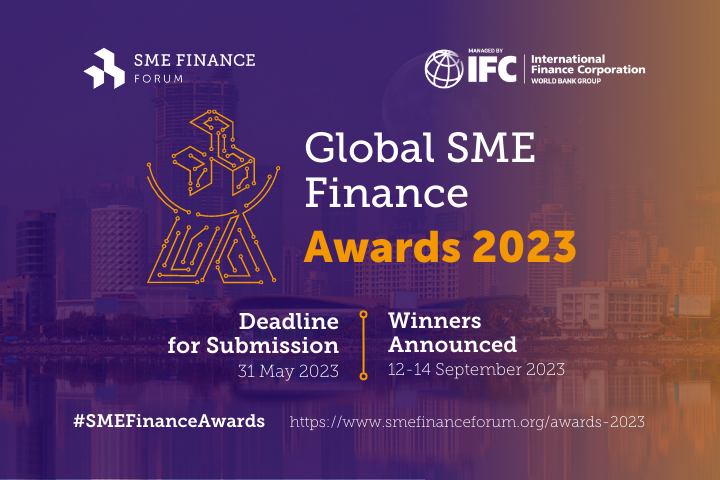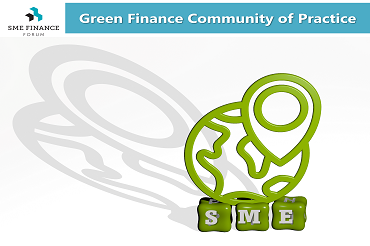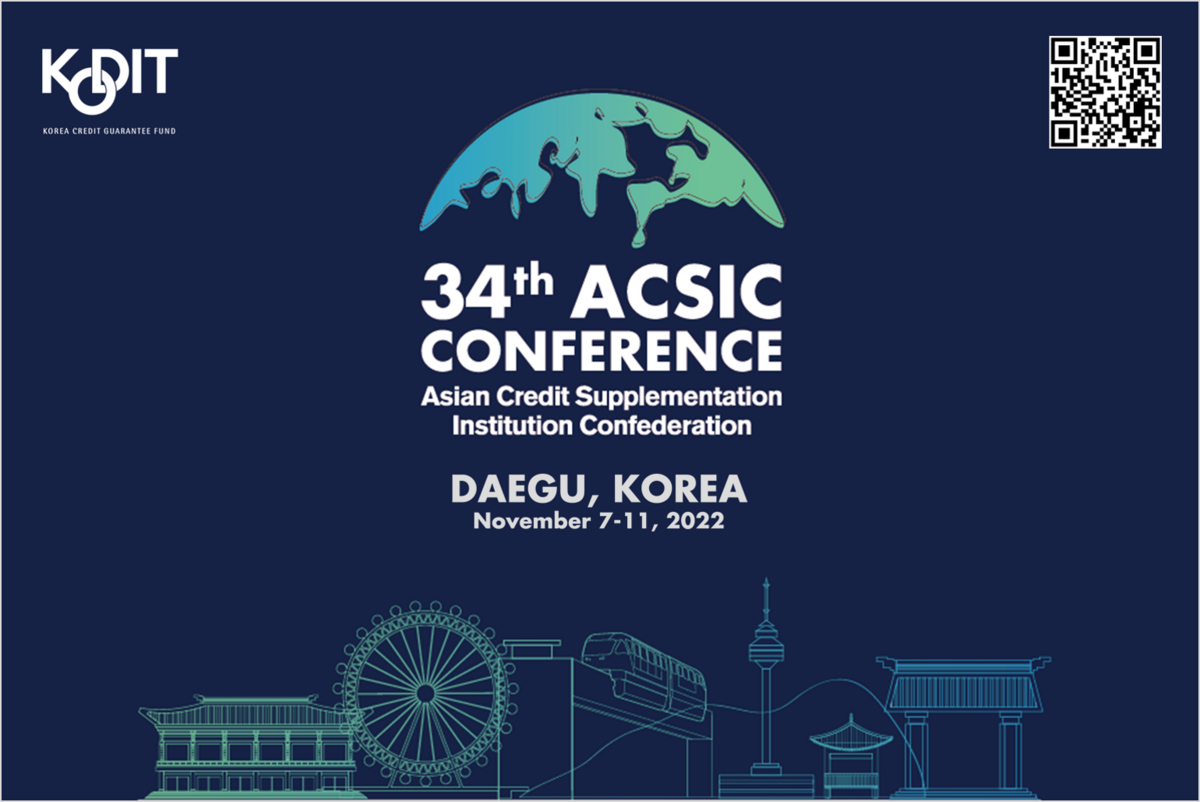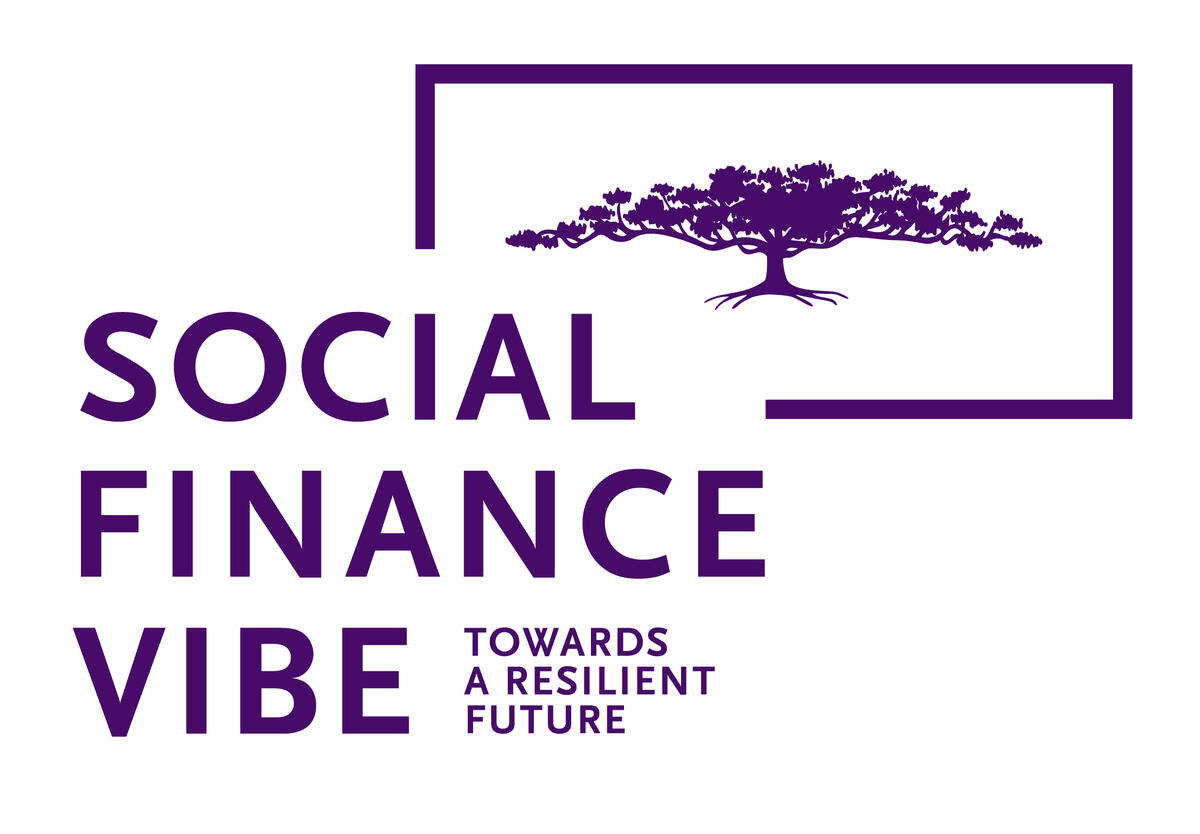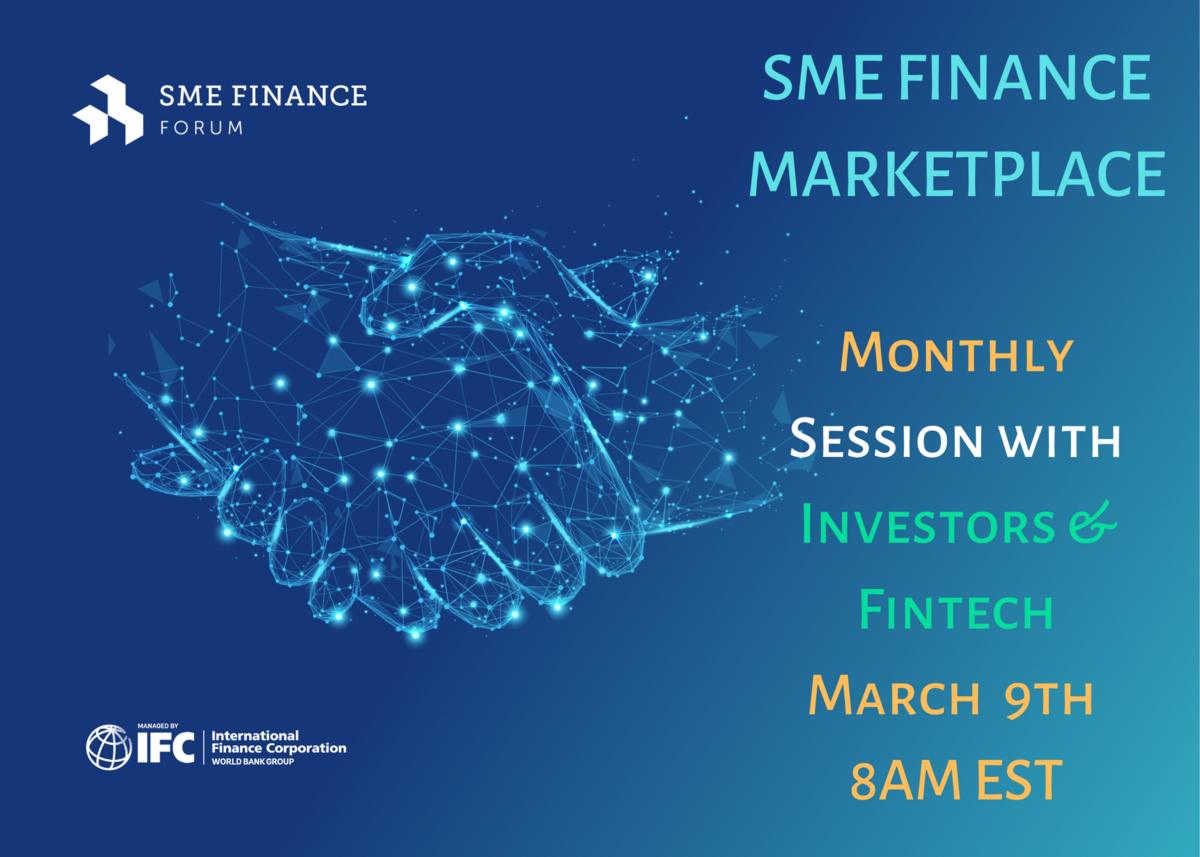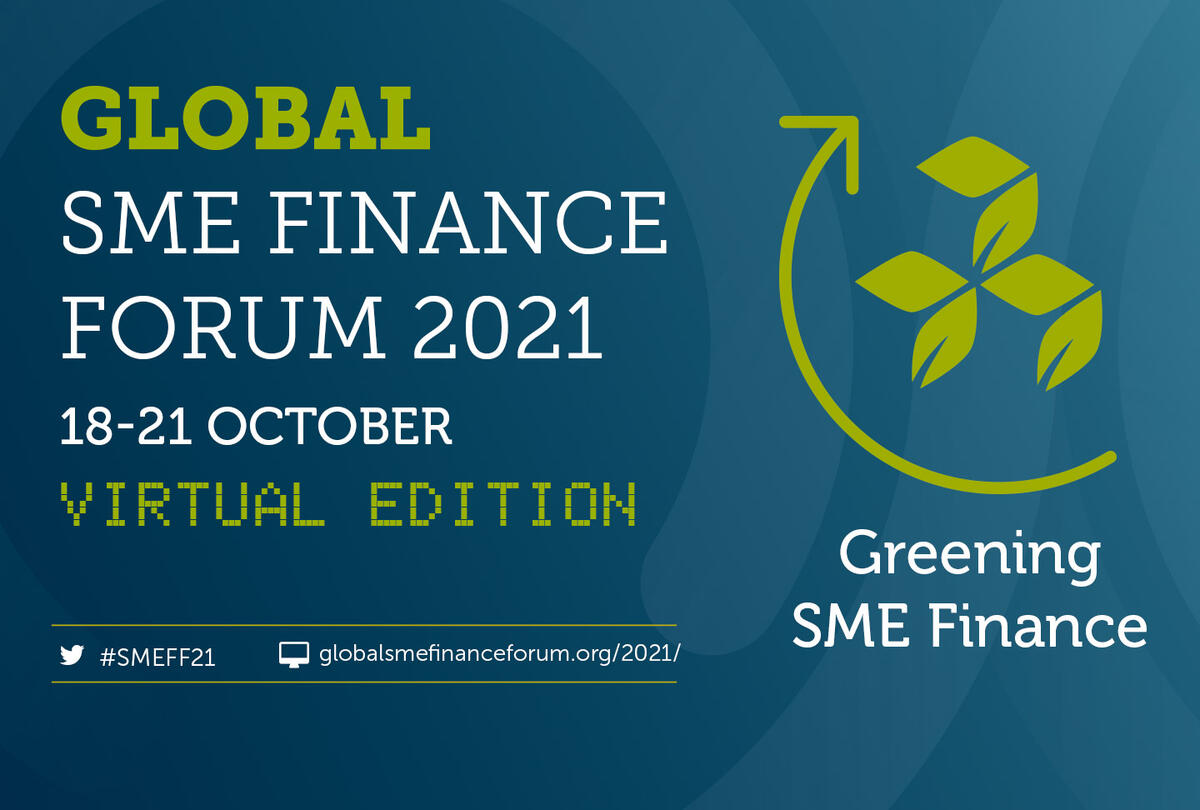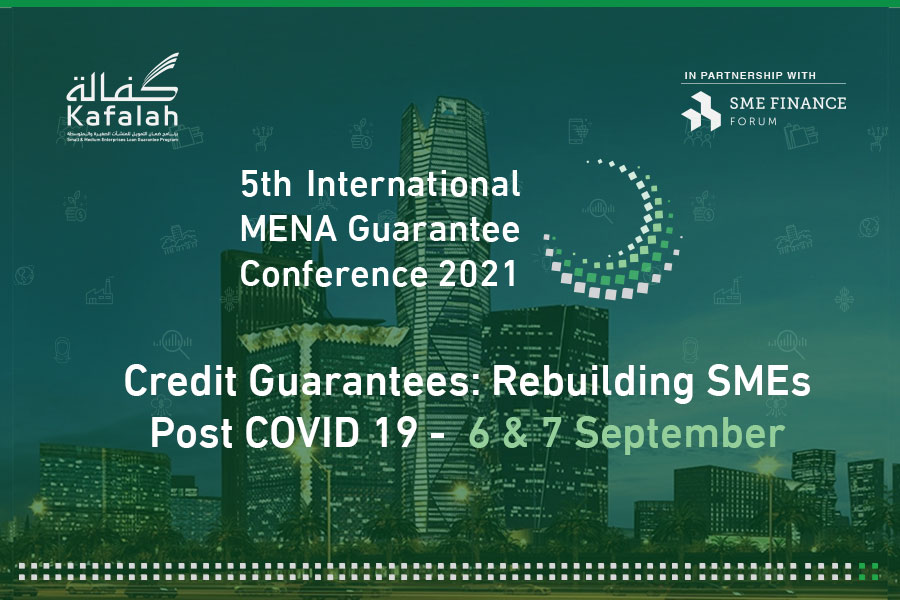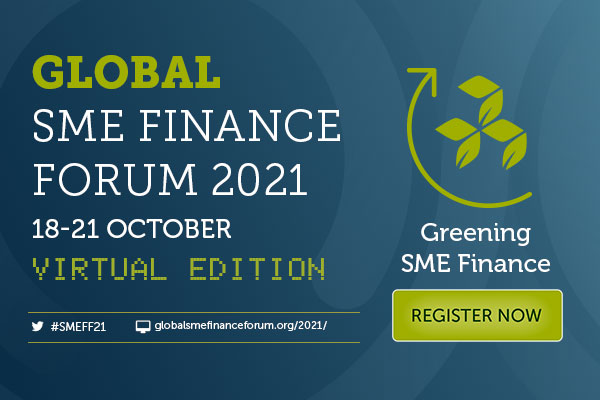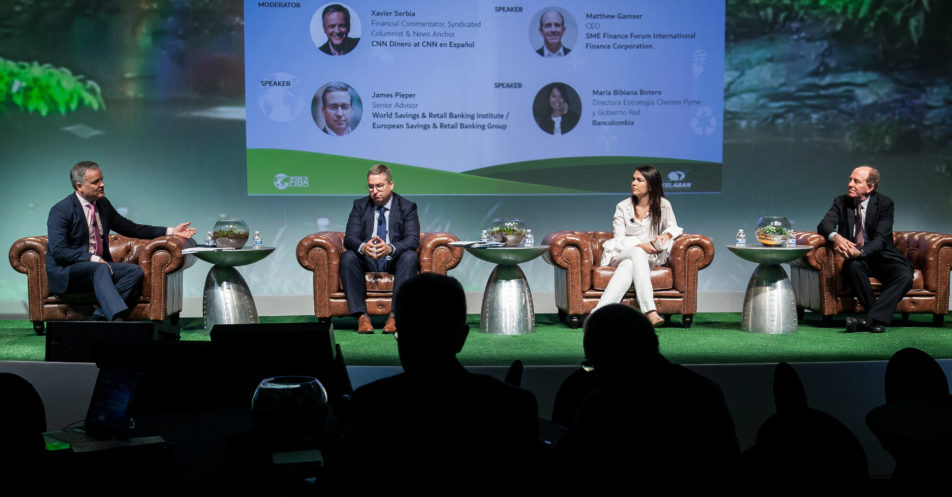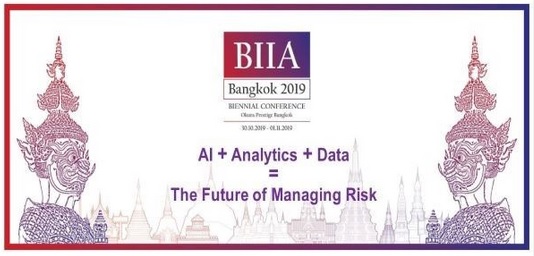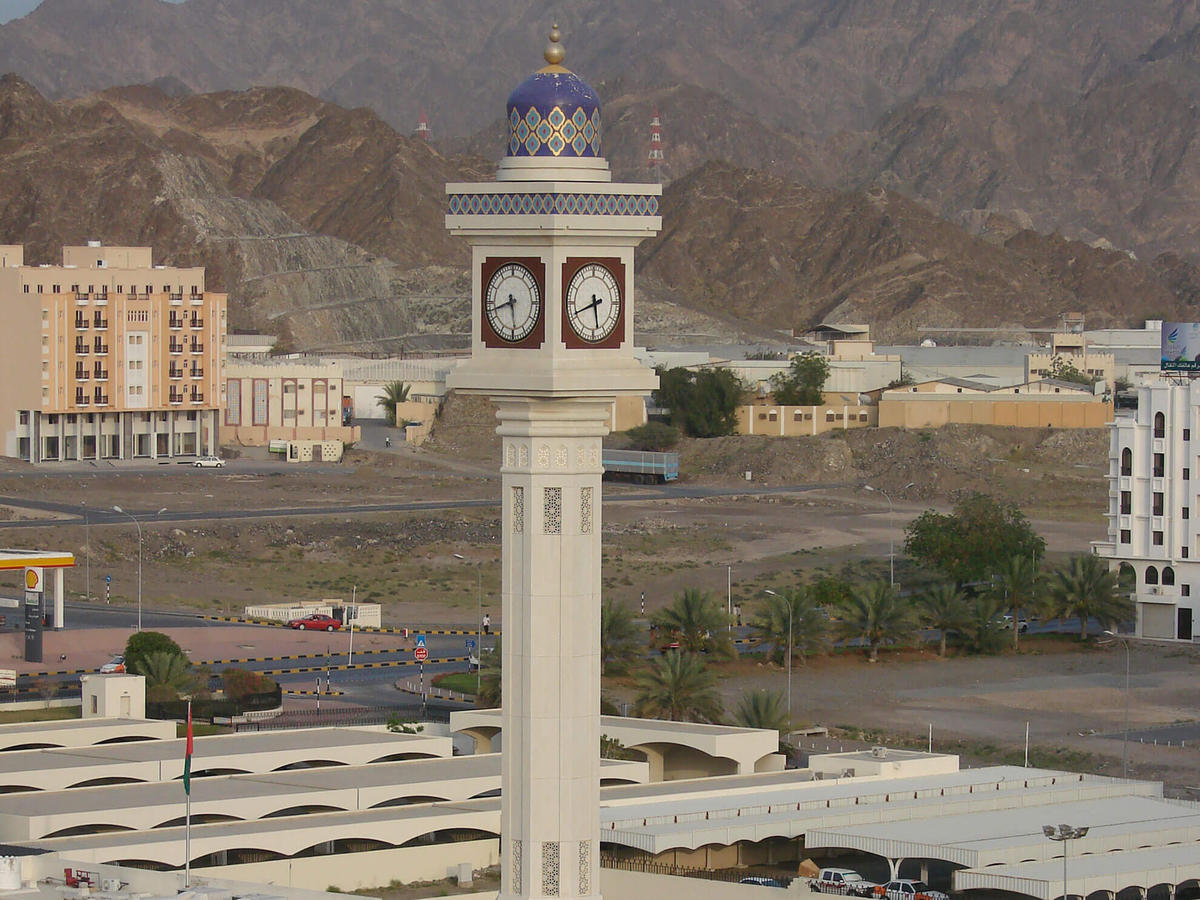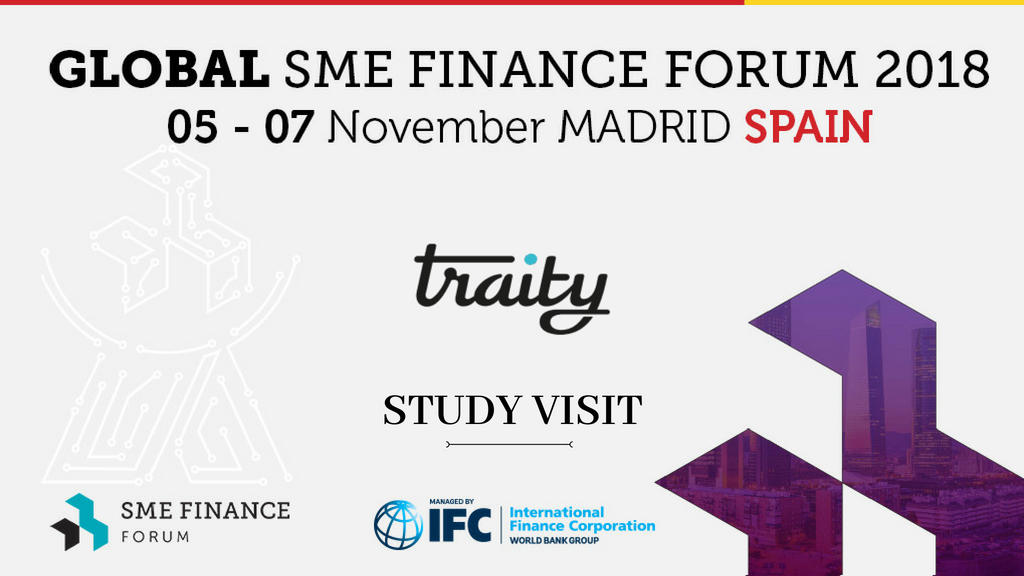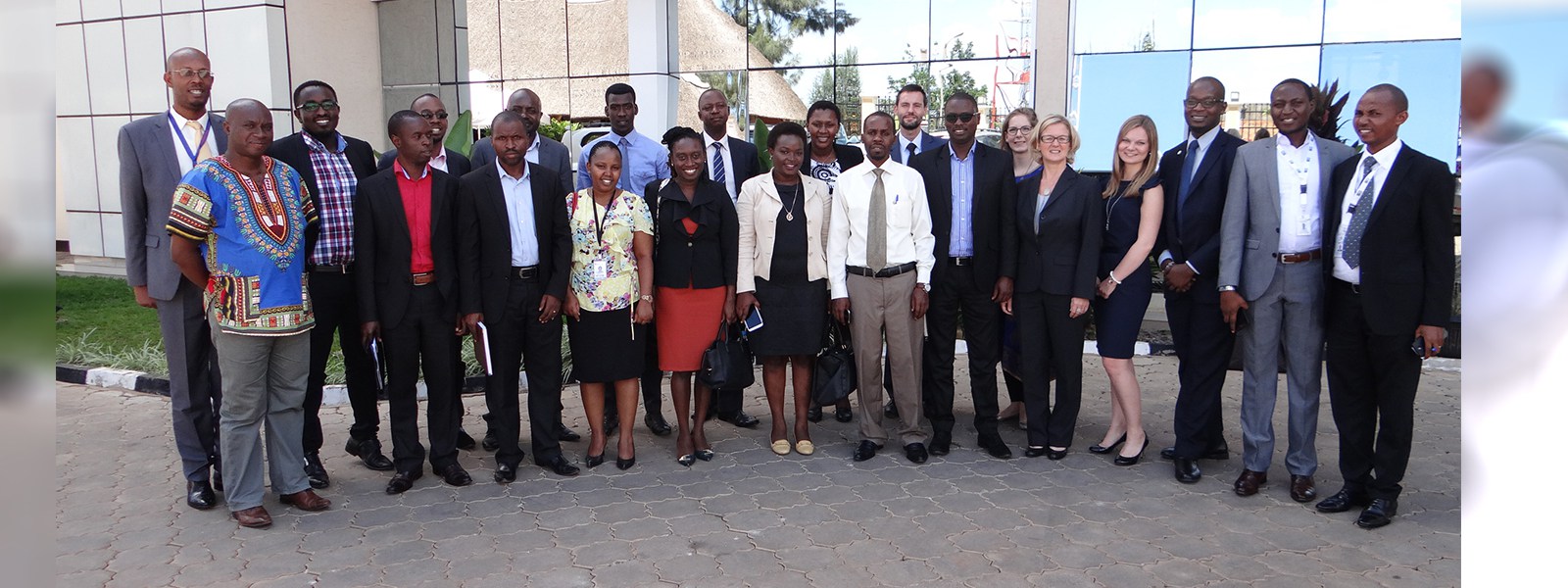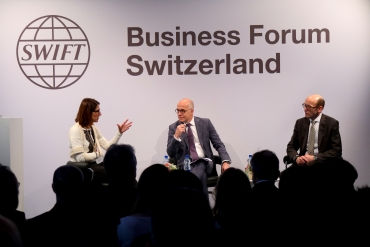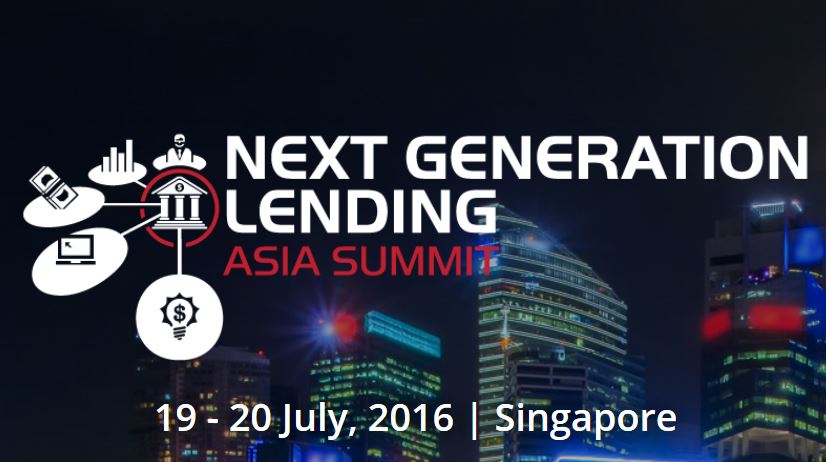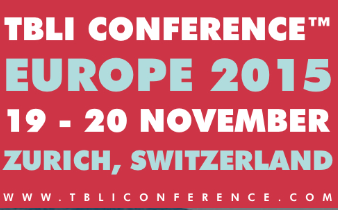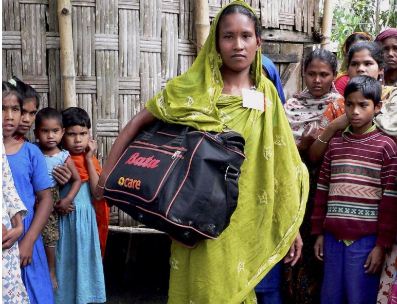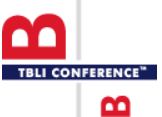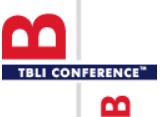Our events
Virtual Roundtable: Leveraging Private Sector Investment to Promote MSME

For more information and to request the password to watch the recording, please contact us at smefinanceforum@ifc.org
Micro, Small and Medium Enterprises (MSMEs) play a paramount part in the wider scope of businesses. New business ventures and start-ups, which tend to be small or micro-enterprises, are the main sources of net employment creation in many economies and are the driving forces of innovation and sustainability in the private sector. This is no different in the APEC region where MSMEs account for 97% of businesses in the region and employ over half of the labor force. Correspondingly, MSMEs’ contributions are significant, accounting for about 40% to 60% of GDP in most APEC economies.
Besides playing a significant economic role, MSMEs are vital towards achieving the Sustainable Development Goals (SDGs), especially in this decade of action. MSMEs can contribute greatly to climate change adaptation by innovating and providing solutions, climate-resilient products, and services for vulnerable communities. The scale of economic activity that MSMEs are involved with, demonstrates that they have huge potential to contribute to climate change mitigation, especially in MSME dominant sectors such as agriculture, manufacturing, and services.
MSMEs also have a unique understanding and foothold in underserved, rural, or remote locations that larger firms have difficulty penetrating due to their economies of scale. Based on a report by the 2022 Micro, Small and Medium Enterprise Transition Roundtable 2 Business and Sustainable Development Commission1, sustainable business models have the potential to create economic opportunities worth $12 trillion USD and create 380 million jobs by 2030, with more than half of these jobs located in developing nations. As such, getting MSMEs to transition towards a greener, more ethical modes of operation is both a developmental and business imperative.
This roundtable seeks to help ABAC identify ways and develop recommendations to APEC on how to unlock the potential of sustainable finance and leverage it to incentivize MSME transition. This involves understanding the contemporary challenges that are abating MSMEs to switch over, particularly in the region’s developing economies. Participants will include experts from industry, multilateral institutions, non-profit organizations, and government and regulatory agencies, as well as delegates from ABAC and relevant APEC fora.
Co-organized by
- APEC Business Advisory Council (ABAC)
- SME Finance Forum
- Office of SMEs Promotion Thailand (OSMEP)
- Asia-Pacific Financial Forum (APFF) Sustainable Finance Development Network (SFDN)
Co-hosted by
- Thai Bankers’ Association
- Office of SMEs Promotion Thailand (OSMEP)
ABOUT THE ORGANIZERS:
APEC Business Advisory Council
The APEC Business Advisory Council (ABAC) was created by the APEC Economic Leaders in November 1995 to provide advice on the implementation of the Osaka Action Agenda and on other specific business sector priorities, and to respond when the various APEC fora request information about business-related issues or to provide the business perspective on specific areas of cooperation. ABAC comprises of up to three members of the private sector from each economy.
APFF Sustainable Finance Development Network
The Sustainable Finance Development Network (SFDN) was set up within the Asia-Pacific Financial Forum (APFF) as recommended by the APEC Business Advisory Council (ABAC) in 2020. It serves as an international platform for private-public sector collaboration, accelerating the convergence of sustainable finance policies among APEC economies and strengthening the region as they develop a common global sustainability framework. This is done primarily through activities supporting the APEC Finance Ministers’ Process and assisting ABAC in developing its high-level recommendations to the Finance Ministers. In 2022, SFDN is mandated to support ABAC in developing recommendations in five key areas, which include MSME transition.
The Office of SMEs Promotion, Thailand
The Office of Small and Medium Enterprises Promotion (OSMEP) is a government agency under the Office of the Prime Minister. The establishment of OSMEP was endorsed by the Small and Medium Enterprises Promotion Act, B.E. 2543 (2000) and the Small and Medium Enterprises Promotion Act (NO. 2), B.E. 2561 (2018). It is the leading organization in formulating policies and strategies on MSME promotion as well as to serve as a focal agency in coordinating the network systems of public and private sectors in order to drive MSMEs to grow with strength and sustainability.
SME Finance Forum
The SME Finance Forum, managed by the International Finance Corporation, was established by the G20 Global Partnership for Financial Inclusion (GPFI) in 2012 as a knowledge center for data, research and best practice in promoting SME finance. It works to expand access to finance for small and medium businesses. The Forum operates a global membership network of over 220 members that brings together financial institutions, technology companies, and development finance institutions to share knowledge, spur innovation, and promote the growth of SMEs.
Thai Bankers’ Association
Since its establishment in 1958, the Thai Bankers’ Association (TBA) has played an active role in representing the banking community in discussions with the Bank of Thailand, Ministry of Finance, Ministry of Commerce, and other government agencies in formulating and implementing key economic and financial policies. It collaborated with the Board of Trade of Thailand and the Federation of Thai Industries in establishing the Joint Public-Private Consultative Committee, a prominent forum to discuss ongoing national issues with the government, which often results in very fruitful adjustment of government policies or amendment of laws and regulations that are conducive to efficient practices in trade and investment. TBA is also a founding member of the ASEAN Bankers Association and works closely with the Foreign Banks Association on various banking issues, including improving the payment system.
When:
15 June 2022
- 1800-2100 Canada, Mexico and USA (Pacific Daylight Time)
- 2000-2300 Canada, Mexico and USA (Central Daylight Time)/Peru
- 2100-2400 Canada, Mexico and USA (Eastern Daylight Time)/Chile
16 June 2022
- 0400-0700 Russia (Moscow Standard Time)
- 0800-1100 Indonesia (Western Indonesian Time)/Thailand/Viet Nam
- 0900-1200 Brunei Darussalam/China/Hong Kong, China/Malaysia/The Philippines/Singapore/Chinese Taipei
- 1000-1300 Japan/Korea
- 1100-1400 Australia (Australian Eastern Standard Time)/Papua New Guinea
- 1300-1600 New Zealand
By registering for this event, you agree to the SME Finance Forum/IFC Event Privacy Notice.


